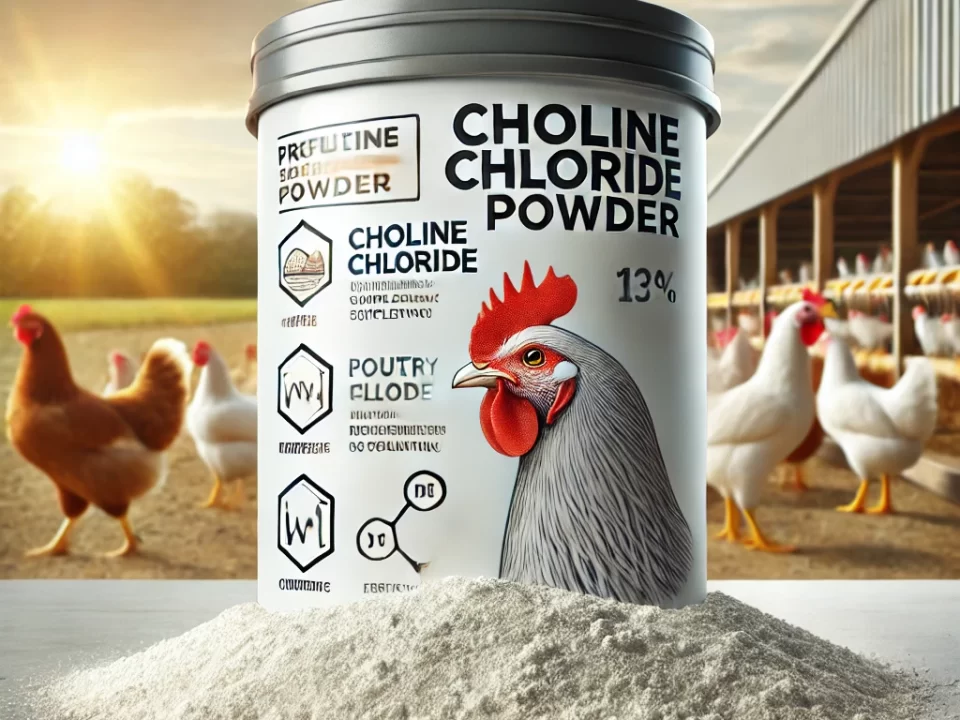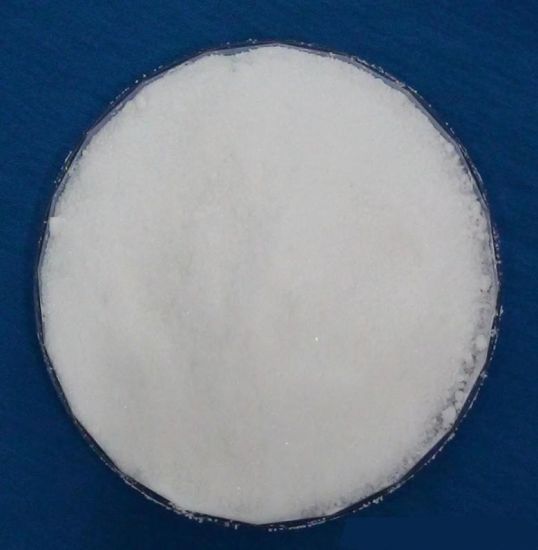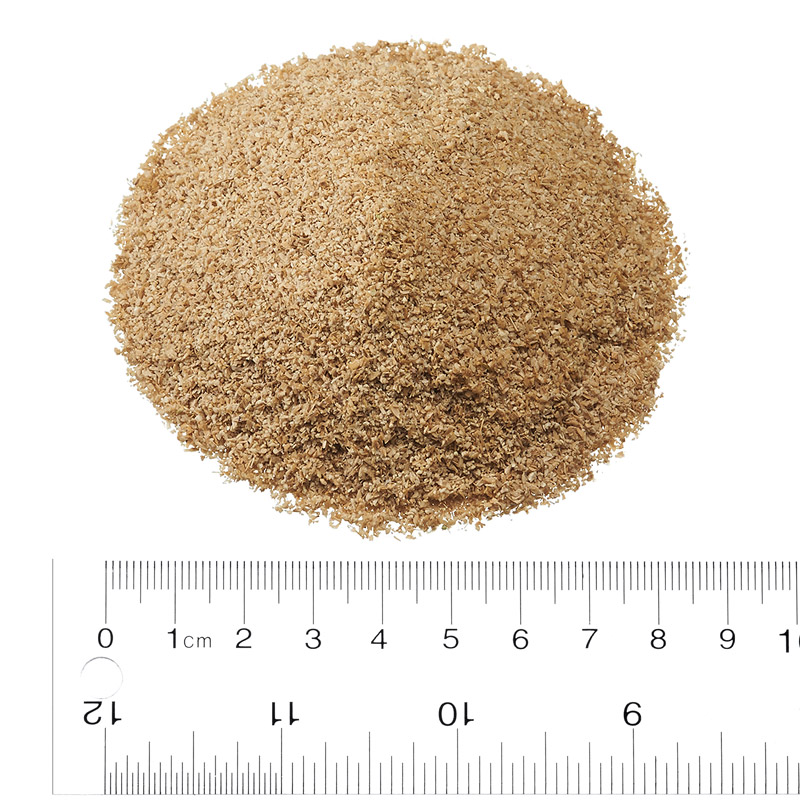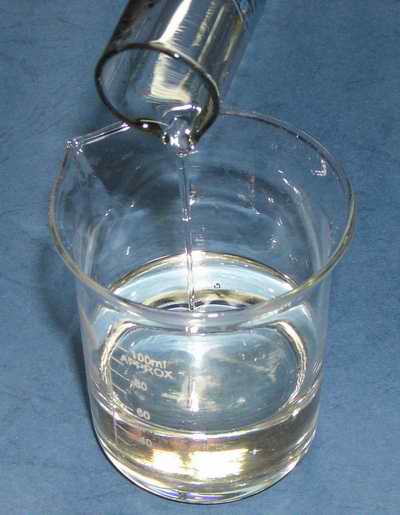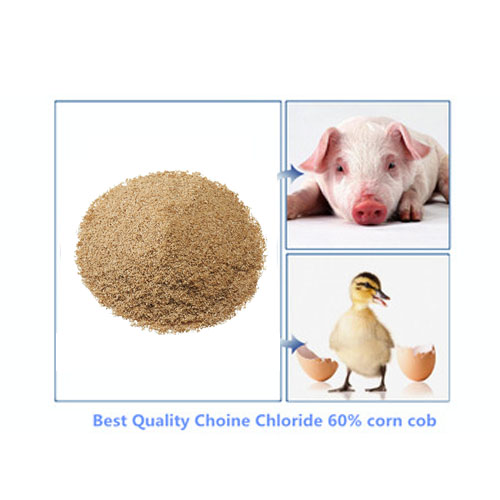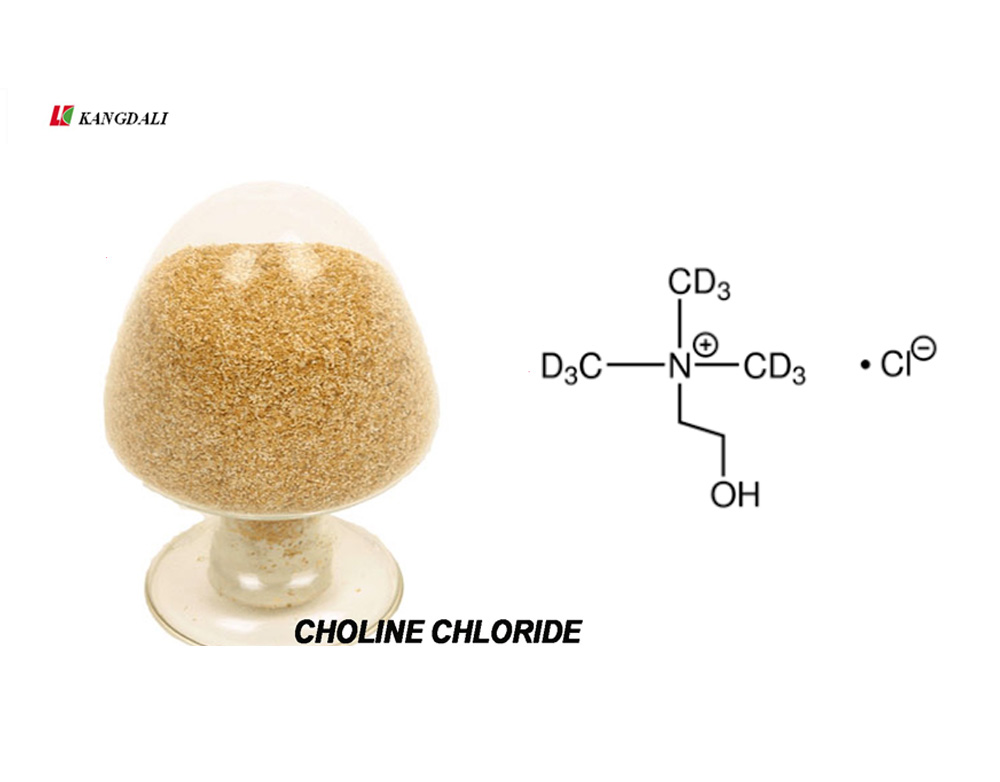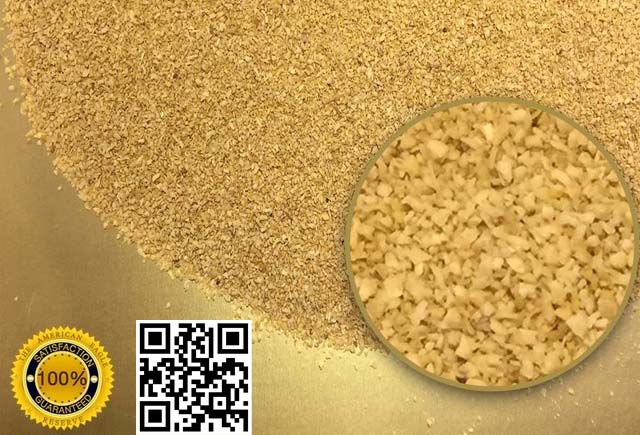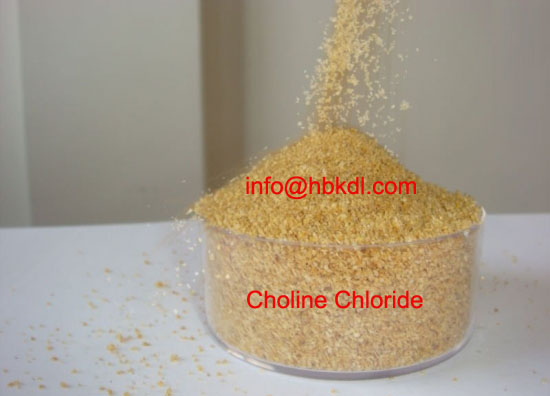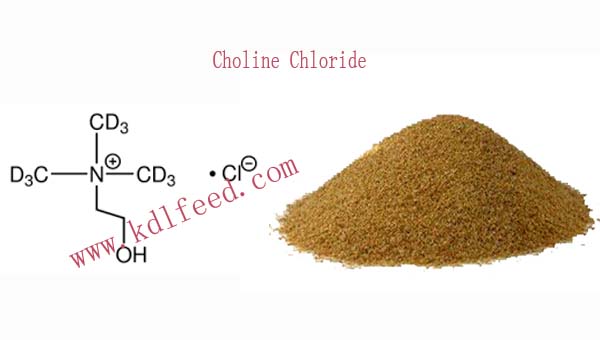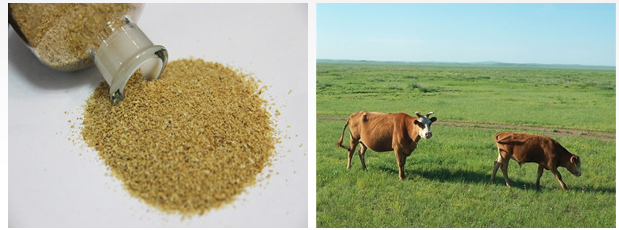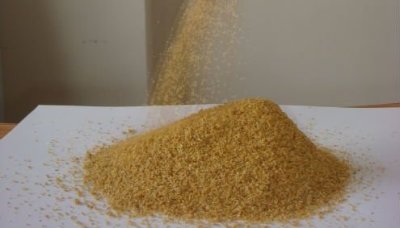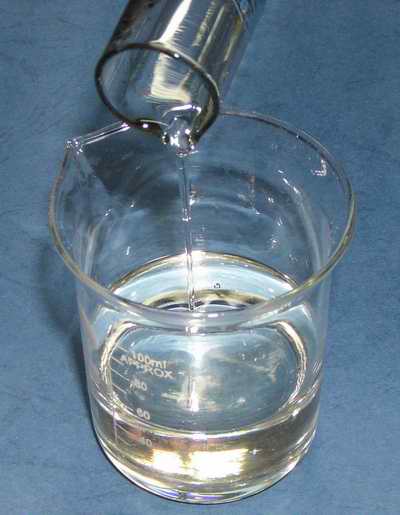Choline Chloride
January 16, 2025
Practical Approach to Choline Chloride Supplementation in Poultry Choline chloride supplementation plays a vital role in poultry nutrition, ensuring optimal growth, performance, and health. The practical approach to supplementing choline chloride involves understanding its role, determining the correct dosage, and integrating it efficiently into […]
May 9, 2019
Physical Properties: This product is a colorless, transparent, viscous liquid with a light fishy smell. Executive Standard: HG/T 2941-2004 Addition amount: The amount added in the full-price material is generally 0.1%-0.3% . Storage: store in a cool dry place, storage temperature -20-40 °C , avoid oil pollution, avoid direct […]
November 30, 2018
White hygroscopic crystallization, tasteless, fishy smell. Mp240 °C. 10% aqueous solution pH 5-6, unstable in lye. This product is soluble in water and ethanol, insoluble in ether, petroleum ether, benzene and carbon disulfide. Low toxicity, LD50 (rat, oral) 3400 mg/kg. For the treatment of […]
March 24, 2018
Choline chloride is a choline hydrochloride, an efficient nutritional supplement and lipid-removing agent. It promotes fat metabolism and prevents fat accumulation in the liver. As vitamin products, widely used in medicine, health products and food nutrition added. Pure colorless or white crystalline particles, very […]
March 7, 2018
Description:70% choline chloride liquid can effectively prevent and treat fat deposits and tissue degeneration in livestock and poultry organs. Amino acids can promote the absorption and synthesis. Can enhance the physical and disease resistance of livestock and poultry, and promote growth and development, improve the egg […]
November 4, 2017
Choline (commonly in the form of Choline chloride) is one of the B categories of vitamin. It is acetylcholine in the biological organization. It is the components of lecithin and nerve acid fat. It is used by most animals as a precursor of acetyl […]
October 15, 2017
Choline chloride is a well-known and globally accepted additive for feed, which is usually classified as a B-complex vitamin. Choline plays a vital role in a number of fundamental processes in the body. It’s indispensable for the bio-synthesis of phosphatidylcholine, and is a basic […]
October 7, 2017
Choline chloride is used as an important feed additive in animal species, especially chickens. Significant volumes of this compound are used in feed for poultry, swine, ruminant, aqua, pet, and horse. It is also known as vitamin B4 although it is required in a […]
September 28, 2017
Choline Chloride 60% Corn Cob Feed Grade Choline is a member of the B-complex group of water-soluble vitamins. It is an essential factor in the normal development and health of animals and is necessary for maximum growth of most animals. As a part of […]
September 8, 2017
Choline Chloride is indispensable for a number of fundamental processes in the body. Although a natural ingredient in many foodstuffs, the concentration is usually too low to ensure proper development and optimum growth in young animals. Choline chloride is the most widely used – […]
July 28, 2017
Choline chloride is marketed in several forms. One form is Biocon choline chloride 50% or 60% vegetable carrier. As deliquescent crystal, it is very soluble in water and alcohol, insoluble in ether, benzene, carbon disulfide and other organic solvents. Actually it has a measured […]
June 14, 2017
Choline chloride is an organic compound and a quaternary ammonium salt. It has a choline cation with chloride anion. Alternative names are hepacholine, biocolina and lipotril. ITEMS CHOLINE CHLORIDE 50% CHOLINE CHLORIDE 60% CHOLINE CHLORIDE 70% Characteristics brown floating powder brown dry floating brown […]
May 24, 2017
Choline is one of the vitamins, and is the main components of lecithin. The young poultry is not of the ability of synthesizing choline. Functions: 1. Increase the growth rate and laying rate of fowls and increase the survive rate of baby pig. 2.Prevent […]
April 29, 2017
Choline (frequently in the form of Choline chloride) is among the B categories of vitamin. It is acetylcholine in the biological organization. It is the components of lecithin and nerve acid fat. It is used by a lot of animals as a precursor of […]
March 29, 2017
Choline chloride is an organic compound and a quaternary ammonium salt. It has a choline cation with chloride anion. Alternative names are hepacholine, biocolina and lipotril. A choline deficiency has been produced in numerous types of animals. In poultry, the shortage is characterized by […]


